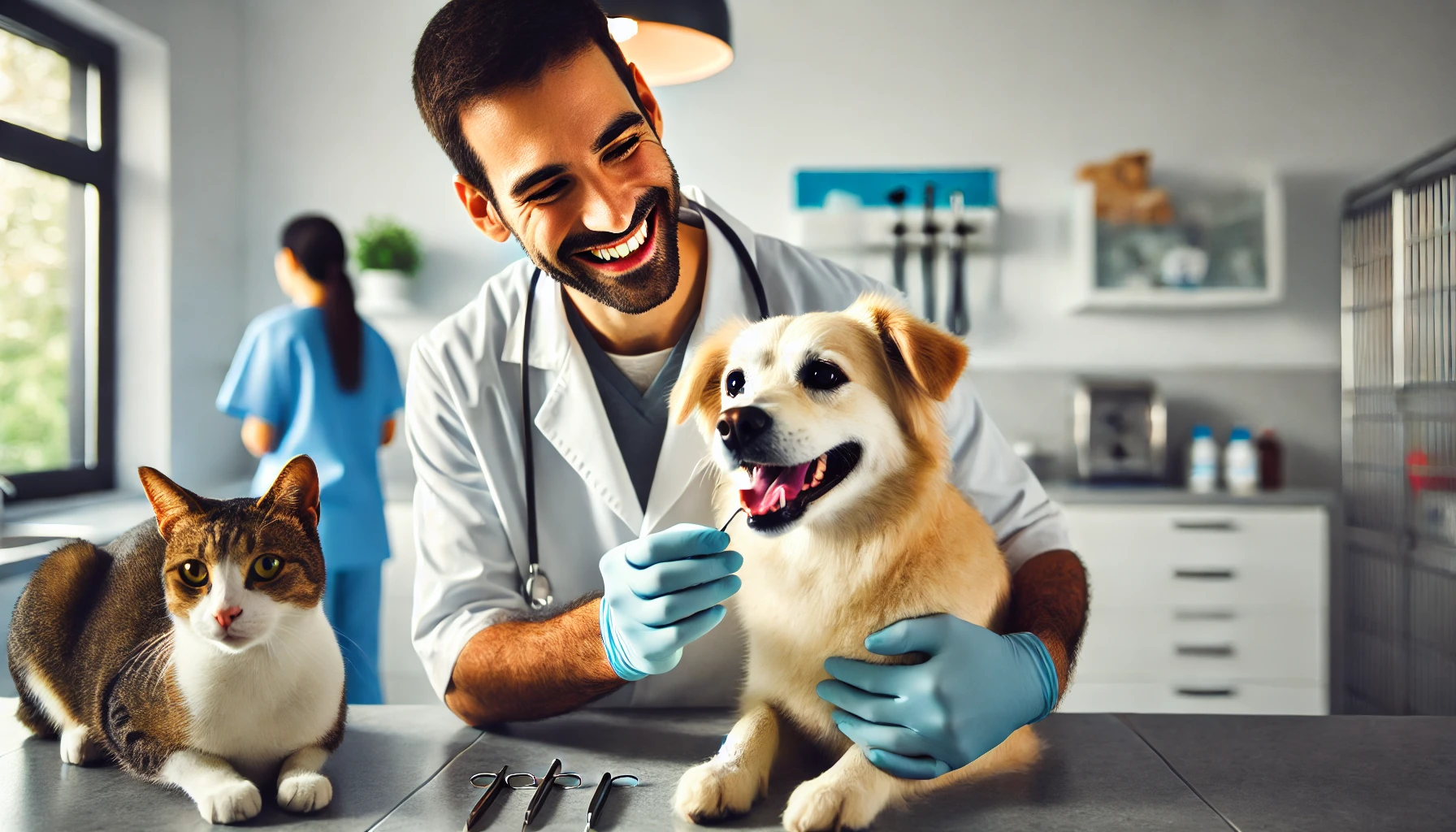
Dental Wellness, Unlocking the Secret to Longer, Healthier Lives for Your Pet
As pet owners, we cherish the love, loyalty, and companionship our furry friends bring into our lives. We do everything we can to ensure their well-being—providing high-quality food, plenty of exercise, and regular vet check-ups. However, one aspect of pet care that often goes overlooked is dental health. Just like humans, pets require proper oral hygiene to prevent disease and maintain overall health. At vet clinic North Vancouver in North Vancouver, we believe that dental wellness is the key to a longer, healthier life for your pet. In this article, we’ll explore why dental care is so important, the benefits of maintaining your pet’s oral health, and common dental issues like feline oral resorptive lesions.
The Importance of Dental Health for Pets
Many pet owners don’t realize that dental disease is one of the most common health issues seen in both dogs and cats. According to veterinary studies, more than 80% of dogs and 70% of cats develop some form of periodontal disease by the age of three. Dental problems can start small, with minor plaque and tartar buildup, but they can quickly progress to painful infections, tooth loss, and even serious systemic health issues.
When bacteria from infected gums enter the bloodstream, it can affect vital organs, leading to complications such as heart disease, kidney disease, and liver problems. This is why regular dental check-ups and professional cleanings are crucial for preventing long-term health risks.
Signs of Dental Disease in Pets
Since our pets can’t tell us when they’re in pain, it’s important to watch for signs of dental disease, including:
- Bad breath (halitosis)
- Yellow or brown tartar buildup on the teeth
- Red, swollen, or bleeding gums
- Drooling excessively
- Difficulty eating or chewing on one side of the mouth
- Pawing at the mouth or face
- Loose or missing teeth
If you notice any of these symptoms, it’s time to schedule a dental check-up with your veterinarian.
Benefits of Good Dental Care
Investing in your pet’s oral health not only prevents disease but also enhances their overall quality of life. Here are some of the key benefits of maintaining good dental hygiene for your pet:
1. Prevention of Pain and Discomfort
Gum disease and tooth decay can be incredibly painful for pets, making it difficult for them to eat and enjoy their daily activities. By keeping their teeth clean, you can prevent unnecessary pain and discomfort.
2. Longer Lifespan
Studies suggest that pets with good dental health tend to live longer lives. By reducing the risk of infections and systemic diseases, proper oral care contributes to a longer, healthier life for your furry companion.
3. Better Breath
Bad breath in pets is not just unpleasant—it’s often a sign of bacteria buildup and dental disease. Regular brushing and professional cleanings help keep your pet’s breath fresh and their mouth free of harmful bacteria.
4. Reduced Risk of Serious Health Problems
Dental infections can lead to heart, kidney, and liver issues if bacteria spread through the bloodstream. By maintaining good oral hygiene, you help protect your pet’s vital organs.
5. Stronger Teeth and Gums
Healthy teeth allow pets to chew their food properly, ensuring better digestion and nutrient absorption. Strong gums also support tooth stability, reducing the risk of tooth loss.
Feline Oral Resorptive Lesions
One of the most common yet often undiagnosed dental conditions in cats is Feline Oral Resorptive Lesions (FORLs). These painful lesions occur when the cat’s tooth structure breaks down and is resorbed by the body. It’s estimated that up to 75% of cats over the age of five develop at least one resorptive lesion.
Symptoms of FORLs in Cats
Cats are experts at hiding pain, but some signs of FORLs include:
- Drooling excessively
- Sudden preference for soft food
- Chattering of teeth when eating
- Pawing at the mouth
- Red or inflamed gums
- Decreased appetite or weight loss
Treatment and Prevention
Unfortunately, there is no way to reverse FORLs, and affected teeth often need to be extracted to relieve pain and prevent infection. The best way to prevent FORLs is through regular dental check-ups, professional cleanings, and at-home dental care.
Final Thoughts
Caring for your pet’s dental health is one of the best ways to ensure they live a long, happy life. Regular brushing, routine veterinary cleanings, and a proper diet can prevent serious diseases and keep your pet’s mouth healthy. At North Care Animal Hospital in North Vancouver, we are committed to helping pet owners understand the importance of dental care and providing high-quality dental services for their furry companions.
If you haven’t had your pet’s teeth checked recently, schedule a dental exam today! Your pet will thank you with fresh breath, a healthy smile, and many more happy years by your side.
For more information about pet dental care or to book an appointment, contact us today!
